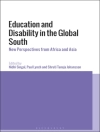The Tenacity of the Couple-Norm explores the ongoing strength and insidious grip of couple-normativity across changing landscapes of law, policy and everyday life in four contrasting national contexts: the UK, Bulgaria, Norway and Portugal.
By investigating how the couple-norm is lived and experienced, how it has changed over time, and how it varies between places and social groups, this book provides a detailed analysis of changing intimate citizenship regimes in Europe, and makes a major intervention in understandings of the contemporary condition of personal life. The authors develop the feminist concept of ‘intimate citizenship’ and propose the new concept of ‘intimate citizenship regime’, offering a study of intimate citizenship regimes as normative systems that have been undergoing profound change in recent decades. Against the backdrop of processes of de-patriarchalization, liberalization, pluralization and homonormalization, the ongoing potency of the couple-norm becomes ever clearer.
The authors provide an analysis of how the couple-form is institutionalized, supported and mandated by legal regulations, social policies and everyday practices, and how this serves to shape the intimate life choices and trajectories of those who seem to be living aslant to the conventional heterosexual cohabiting couple-form. Attending also to practices and moments that challenge couple-normativity, both consciously chosen and explicit, as well as circumstantial, subconscious and implicit, The Tenacity of the Couple-Norm makes an important contribution to literatures on citizenship, intimacy, family life, and social change in sociology, social policy, socio-legal studies, gender/sexuality/queer studies and psychosocial studies.
Praise for The Tenacity of the Couple-Norm
‘Highly recommend[ed] to anyone interested in contemporary intimate relationships. …There is a thorough methodological discussion which is an excellent source of inspiration for anyone looking to delve deeper into narrative methods and life stories.’
Lambda Nordica
‘The originality of The Tenacity of the Couple-Norm rests on its multifaceted historical observation and analysis of the recent developments of policies, social movements and cultures dominant in four different European countries and their effects on the intimate lives and relationships of individuals living outside the couple-norm. This book may serve as an invaluable work for academics and students who study intimate citizenship regimes, intimate and couple relationships and the ways such relationships accept or resist the norms of intimate citizenship.’
LSE Review of Books
‘The book is innovative in topic, accessible in style, and promising in its potential to inform policy-making. Moreover, it will undoubtedly contribute to future scholarship in gender studies, sociology, anthropology and European studies.’European Journal of Women’s Studies
‘[a] very important and thought-provoking work’
Sexualities
Cuprins
List of figures
Preface and acknowledgements
Part I: Identifying the couple-norm 1. Introduction 2. Questioning the couple-form 3. Approach and core concepts
Part II: Couple-normativity in European intimate citizenship regimes 4. Overview of couple-normativity in European intimate citizenship regimes 5. The United Kingdom intimate citizenship regime 6. The Bulgarian intimate citizenship regime 7. The Norwegian intimate citizenship regime 8. The Portuguese intimate citizenship regime
Part III: Case studies in living with and against the couple-norm 9. Interviewees and methodology 10. Living with and against the couple-norm in London 11. Living with and against the couple-norm in Sofia 12. Living with and against the couple-norm in Oslo 13. Living with and against the couple-norm in Lisbon
Part IV: The tenacity of the couple-norm 14. Understanding the tenacity of the couple-norm 15. Imagining intimate citizenship beyond the couple-norm
Part V: Methodological appendix
References
Index
Despre autor
Mariya Stoilova holds a postdoctoral research position at the London School of Economics and Political Science.












